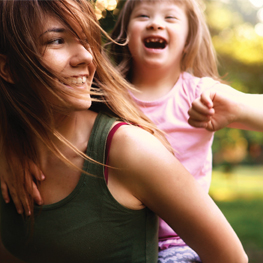



As a parent of a child with special needs, I can’t tell you how many times someone has innocently said to me, “I don’t know how you do it.” Meant to be an empathetic comment, it often left me wanting to respond, “I don’t know either” or, “It’s not like I have a choice...” Being a special-needs parent is not something I wished for, but is part of who I am. Usually I was the person who helped - now I am often the one who needs help. I am more comfortable giving than receiving. It hurts to feel vulnerable. It’s difficult to acknowledge that I can’t do it all on my own, that I need ‘the village.’

When a child receives as psychoeducational diagnosis following an assessment process, many parents are faced with the same key question: ‘When and how should I talk to my child and other children about the assessment results?’ While each child is unique and individualized guidance can be key in navigating the best approach for your family, the following are some guidelines for you to consider.

Special events are the stuff of happy memories for most of us, but for children with autism, the departure from routine and avalanche of social expectations in an unfamiliar setting full of strangers can spell potential calamity. ‘No surprises!’ is a tactic worth the preparation and planning effort.

It’s a beautiful vision on the horizon: Your child with autism all grown up, a capable and independent adult. When our children are young, that horizon can seem far away. How will we get there? What should I be doing now?
Calgary’s Child Magazine © 2024 Calgary’s Child